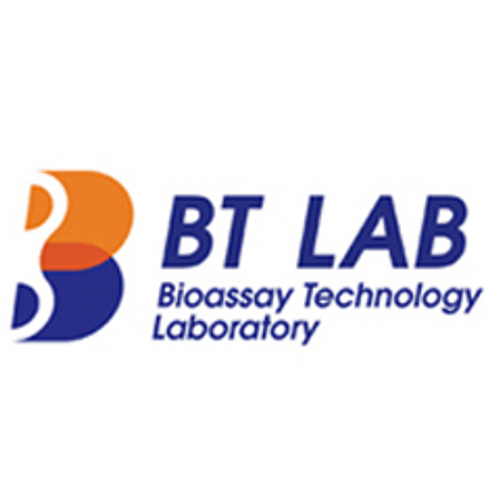Product Description
Human α2-Smooth muscle actin (α2-SMA) ELISA Kit | AE23585HU | Abebio
Species Reactivity: Human (Homo sapiens)
Abbreviation: ACTA2
Alternative Name: AAT6; ACTSA; alpha 2 actin|alpha-cardiac actin|growth-inhibiting gene 46
Application: ELISA
Range: 7.8-500 ng/mL
Sensitivity: 2.9 ng/mL
Intra-Assay: ≤3.5%
Inter-Assay: ≤7.2%
Recovery: 1
Sample Type: Serum, Plasma, Other biological fluids
Detection Method: Sandwich
Analysis Method : Quantitive
Test Principale: This assay employs a two-site sandwich ELISA to quantitate ACTA2 in samples. An antibody specific for ACTA2 has been pre-coated onto a microplate. Standards and samples are pipetted into the wells and anyACTA2 present is bound by the immobilized antibody. After removing any unbound substances, a biotin-conjugated antibody specific for ACTA2 is added to the wells. After washing, Streptavidin conjugated Horseradish Peroxidase (HRP) is added to the wells. Following a wash to remove any unbound avidin-enzyme reagent, a substrate solution is added to the wells and color develops in proportion to the amount of ACTA2 bound in the initial step. The color development is stopped and the intensity of the color is measured.
Product Overview: Alpha-actin-2 also known as actin, aortic smooth muscle or alpha smooth muscle actin (α-SMA, SMactin, alpha-SM-actin, ASMA) is a protein that in humans is encoded by the ACTA2 gene located on 10q22-q24. Actin alpha 2, the human aortic smooth muscle actin gene, is one of six different actin isoforms which have been identified. Actins are highly conserved proteins that are involved in cell motility, structure and integrity. Alpha actins are a major constituent of the contractile apparatus. Alpha-smooth muscle actin (α-SMA) is commonly used as a marker of myofibroblast formation (Nagamoto et al., 2000) .
Stability: The stability of ELISA kit is determined by the loss rate of activity. The loss rate of this kit is less than 5% within the expiration date under appropriate storage condition. The loss rate was determined by accelerated thermal degradation test. Keep the kit at 37°C for 4 and 7 days, and compare O.D.values of the kit kept at 37°C with that of at recommended temperature. (referring from China Biological Products Standard, which was calculated by the Arrhenius equation. For ELISA kit, 4 days storage at 37°C can be considered as 6 months at 2 - 8°C, which means 7 days at 37°C equaling 12 months at 2 - 8°C) .
 Euro
Euro
 USD
USD
 British Pound
British Pound
 NULL
NULL








